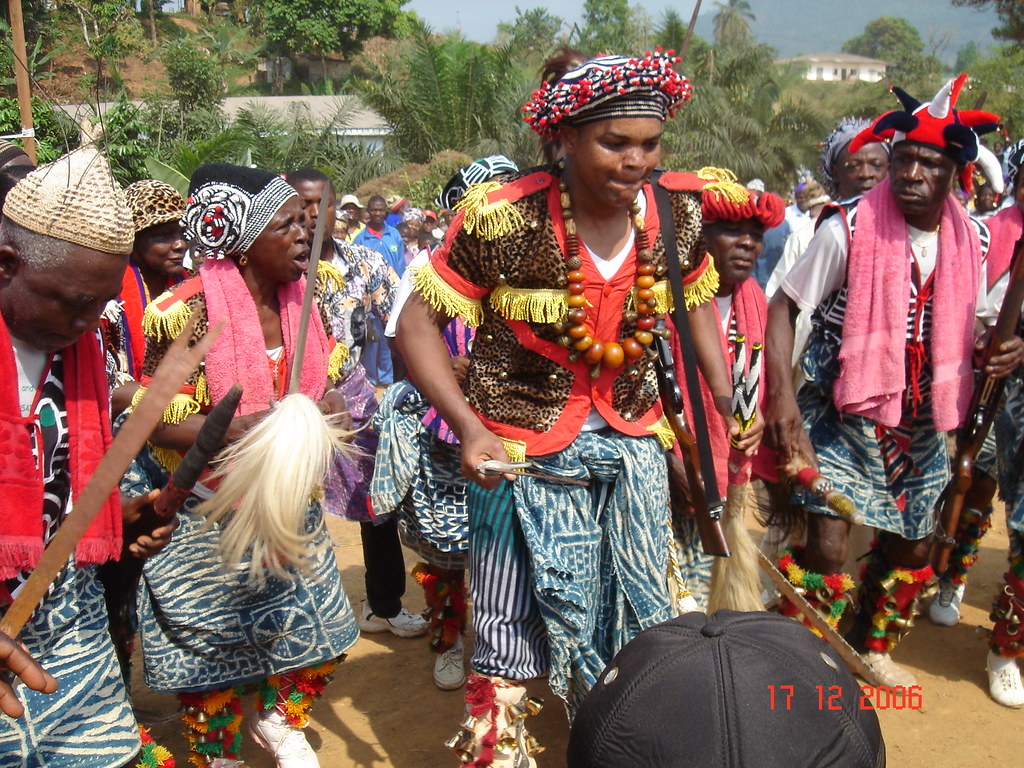The Nigeria-Cameroon border is a large cultural area, which is inhabited by a large number of related peoples. These peoples can be divided into three smaller subgroups: Bamileke, Bamum, and Bamenda Tikar. They can be found in Kano state.
Read more about Ethnic Groups In Nigeria
The Bangwa are one of the numerous smaller ethnic groups within the Bamileke complex. They are loosely affiliated with other groups in the complex, sharing many historical and political similarities while retaining their separate identity.
All members of this group originally came from an area to the north and migrated in various complex patterns throughout the last several centuries. Fulani traders moving steadily southwards into Cameroon in the 17th century forced the southern drift of most of the current residents.
The Bangwa were only officially separated from the Bamileke during colonial administration during the early 20th century.
Socio-Economic And Political Systems
The Bangwa, like most of the people in the areas they inhabit, are historically farmers who grow maize, yams, and peanuts as staple crops. They also raise some livestock, including chickens and goats, which play an important role in daily sustenance. Women, who are believed to make the soil more fruitful, are responsible for the tasks of planting and harvesting the crops. Men are responsible for clearing the fields for planting and practising some nominal hunting.
In the political complex of the Bangwa, political authority is vested in a village chief, who is supported by a council of elders, and is called Fon. The Fon is elected to his position by his predecessor’s council and is often an elder member of the most powerful extended family within the community.
The chief is recognized as the de-facto owner of all the land that belongs to a given village and is seen as the dispenser of supreme justice. Social behaviour within the village is further controlled through a series of extensive age-grade associations and secret societies, both of which fall under the auspices of the village chief.
Sign up to the Connect Nigeria daily newsletter
Art Forms
Most Bangwa statues are royal portraits, which are kept in royal shrines along with the skulls of the ancestors. Frightening masks associated with the Night society are employed by the chief to maintain social order. Beautiful beadwork associated with the Fon (chief) is common throughout this area.
Religious Beliefs
The Bangwa recognize Si as the supreme god (just like the Bamileke). But it is also a very prominent and common behaviour to pay homage to their ancestors. There is the belief that ancestral spirits are embodied in the skulls of deceased ancestors. The skulls are in the possession of the eldest living male in each lineage, and all members of an extended family recognize the skulls as common heritage.
When a family decides to relocate, a dwelling, which must be first purified by a diviner, is built to house the skulls in the new location. Although not all of the ancestral skulls are in the possession of a family, the memories of all ancestors are honoured. The spirits of ancestors whose skulls are not preserved have nowhere to reside and may as a result cause trouble for the family.
To compensate when a man’s skull is not preserved, a family member must undergo a ceremony in which libations are poured into the ground. Earth gathered from the site of that offering then represents the skull of the deceased. Respect is also paid to female skulls, although details about such practices are largely unrecorded.
Sources:
Joshua Project
Africa.uima.uiowa.edu
Featured Image Source: Flickr
Got a suggestion? Contact us: [email protected]

